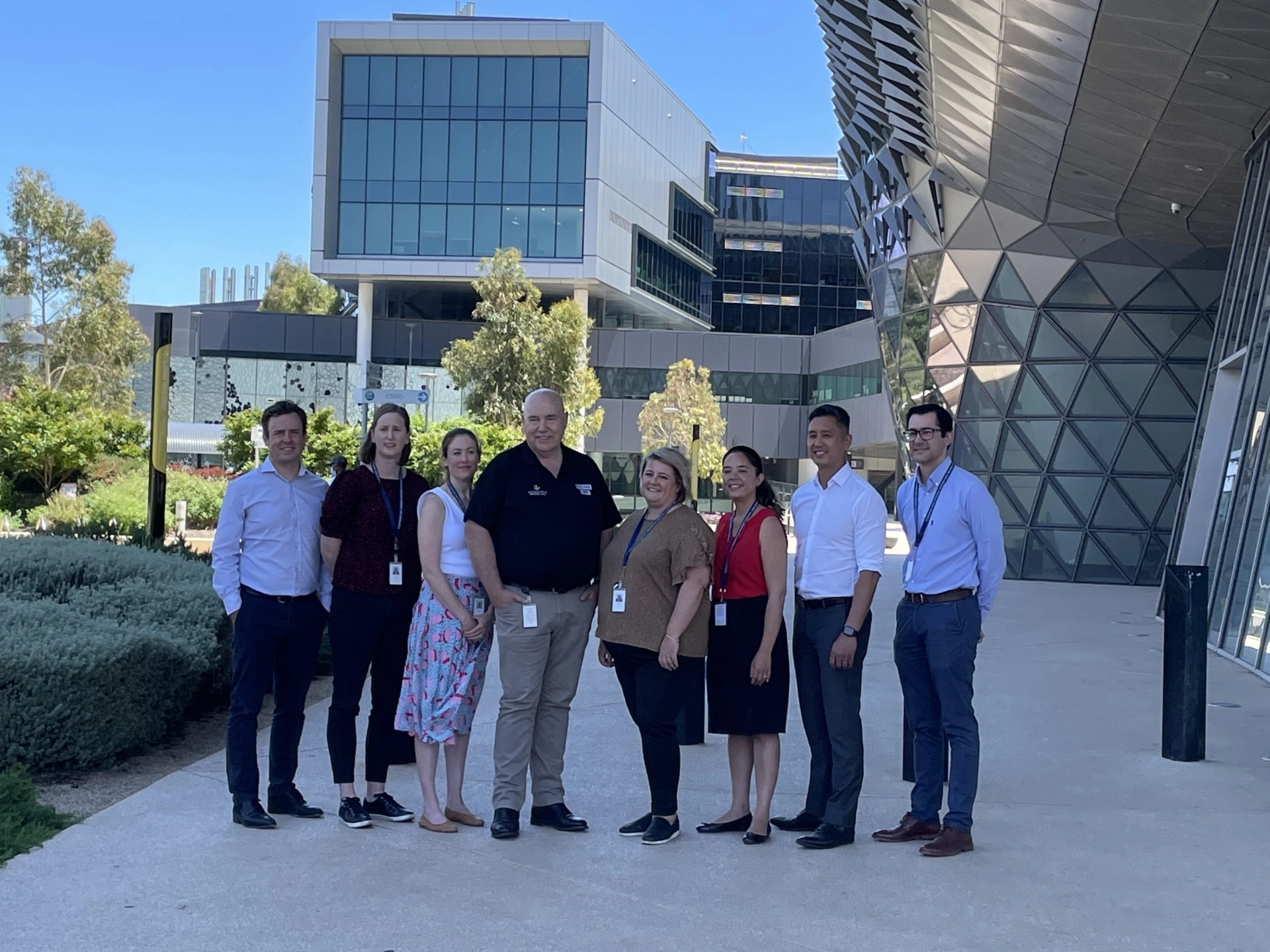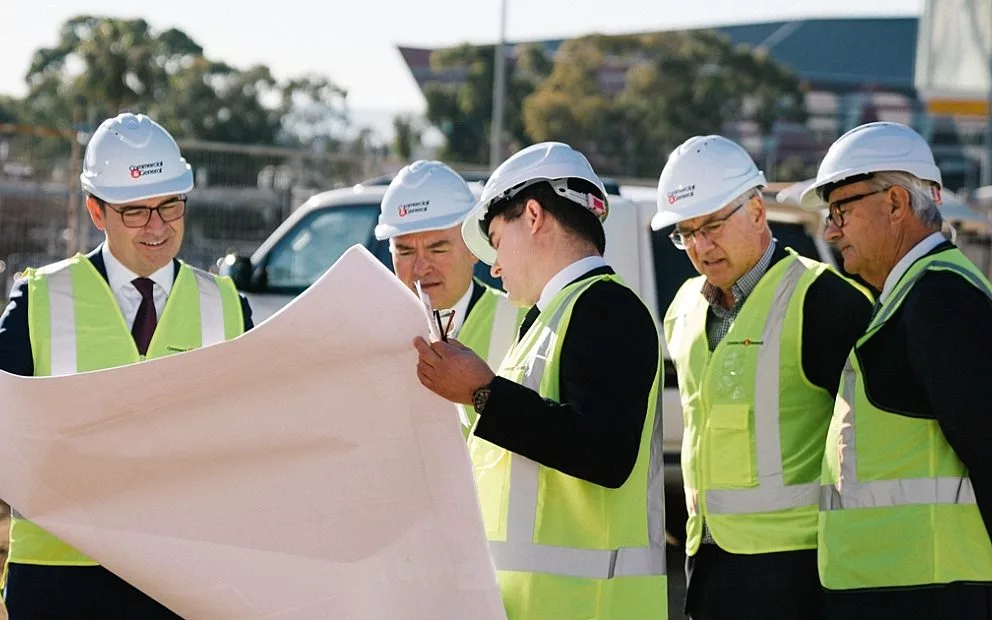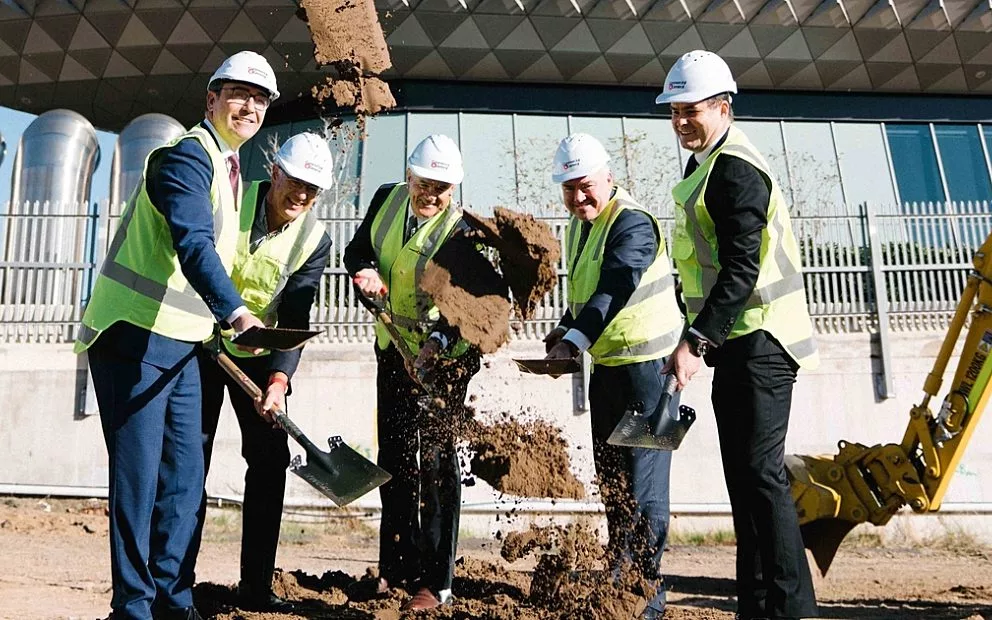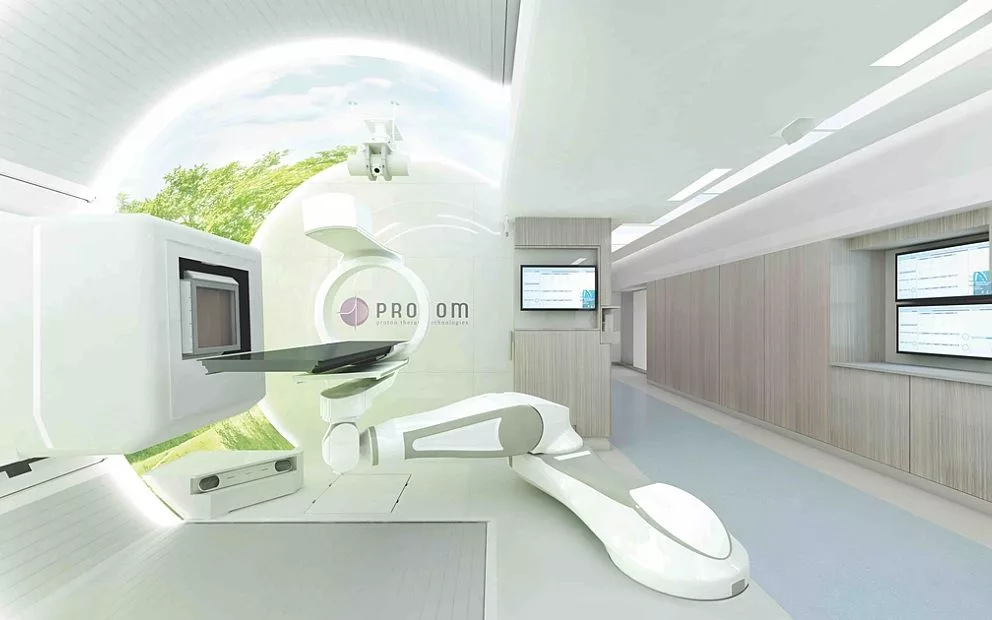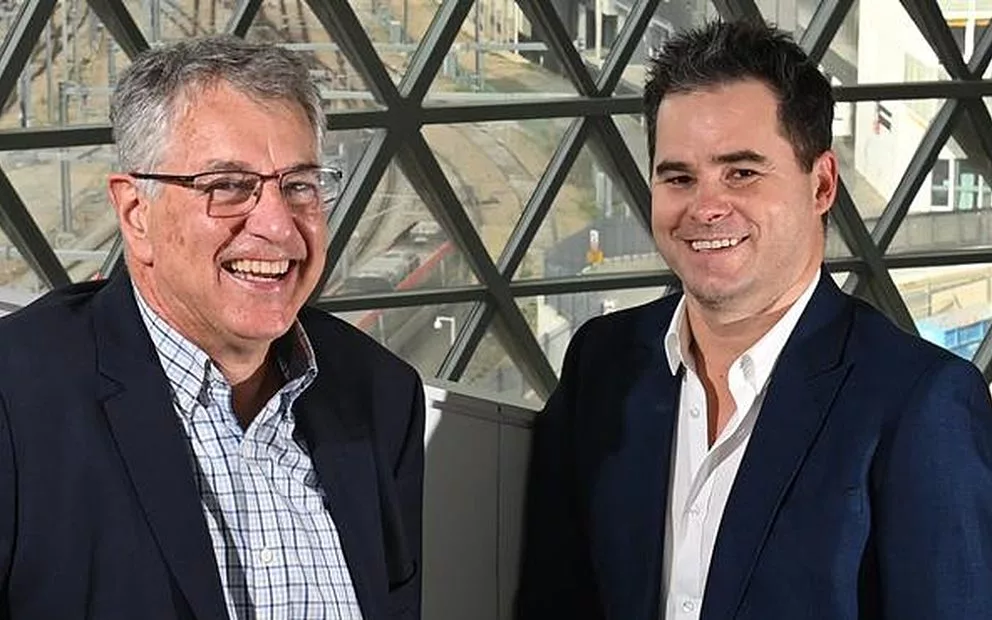The team tasked with preparing for Australia’s first proton therapy unit is experiencing a rapid expansion thanks to $2 million funding from The Hospital Research Foundation Group.
The funding has enabled the Australian Bragg Centre for Proton Therapy and Research (ABCPTR) to expand its workforce from two people to 13 within the space of a couple of months.
Professor Steve Wesselingh, the Executive Director of SAHMRI which is driving the ABCPTR development, says the injection of expertise is an exciting milestone on the path to bringing the most advanced cancer treatment technology available to Adelaide.
“We can see the foundation of the incredible Australian Bragg Centre building coming out of the ground next to SAHMRI’s headquarters on North Terrace,” he said.
“Now, thanks to support from The Hospital Research Foundation, we are also able to lay the foundation for the centre’s operational future by bringing the right people on board.”
“I’d like to recognise and thank the foundation for its vision to support proton therapy, which can destroy cancerous tumours while minimising damage to surrounding healthy tissue and vital organs.”
The Hospital Research Foundation Group CEO, Paul Flynn, says the organisation is proud to support the appointment of 11 key staff, whose work will be critical in ensuring the necessary preparations are in place to operate this world-class proton therapy unit.
“We’re thrilled to partner with the Australian Bragg Centre for Proton Therapy and Research, which is set to truly transform the cancer treatment landscape,” Mr Flynn said.
“This facility is going to save and improve the lives of young people impacted by cancer locally, nationally and beyond.”
The 11 roles can be divided into three main categories - key medical specialists, the comparative planning unit and the coordination of a new national registry.
The Australian Particle Therapy Clinical Quality Registry (APTCQR) will collect case-by-case data evaluating the safety and efficacy of proton therapy in comparison to conventional x-ray radiotherapy.
The registry’s Project Manager Kelly Skelton says the information collected by the registry will inform future decisions about which proton therapy treatments will be publicly funded.
“Earlier this year we learned that paediatric and rare cancers were to be made eligible for funding under the Medicare Benefits Schedule,” Mrs Skelton said.
“The evidence collected by the registry can show whether other types of cancer could be appropriate to be added to the MBS in future.”
The newly appointed comparative treatment planning team also evaluates proton therapy against conventional radiotherapy but does so on an individual basis.
When a person is diagnosed with a cancer that could be treatable with proton therapy, this team investigates whether the benefits of this treatment outweigh the significant extra costs, including that the patient currently still needs to travel overseas to access proton therapy.
Comparative Planning Coordinator, Melanie Penfold, says the new team will be responsible for generating this data.
“Our dedicated team will be working collaboratively with our national colleagues to ensure a timely service that will aid in the treatment decision making to benefit our paediatric and rare adult cancers patients,” Mrs Melanie Penfold said.
Radiation Oncologists A/Prof Hien Le and A/Prof Peter Gorayski, under the guidance of Medical Director A/Prof Michael Penniment, will support the comparative planning process and oversee final approval on patient treatment plans.
Medical Physicist, Dr Alex Santos will join the growing physics team, contributing to radiation safety management and supporting technical research at the centre.
Proton therapy’s non-invasive, highly targeted nature makes it particularly effective for treating children’s cancers.
The Australian Bragg Centre for Proton Therapy and Research will be Australia’s first proton therapy centre and the first of its kind in the Southern Hemisphere.
It will be housed in a concrete bunker within the basement of the Australian Bragg Centre, which is on track for completion in 2023. From then, the proton therapy machine will undergo 12-18 months of installation and testing before patient treatments begin.
The Australian Bragg Centre is funded by a public/private partnership including SAHMRI, Commercial & General, the Federal Government and the South Australian Government.
See below for a full list of THRFG-supported appointments:
Associate Professor Michael Penniment - Medical Director
Associate Professor Hien Le – Radiation Oncologist
Associate Professor Peter Gorayski - Radiation Oncologist
Kelly Skelton – Clinical Quality Registry Project Manager
Melanie Penfold – Comparative Planning Coordinator
Rosanna Crain – Comparative Planning Radiation Therapist
Emma Shierlaw - Comparative Planning Radiation Therapist
Dr Alex Santos – Medical Physicist
Data Manager - coming next year
Paediatric Radiation Oncologist – coming next year
Clinical Implementation Project Manager – Details not public
